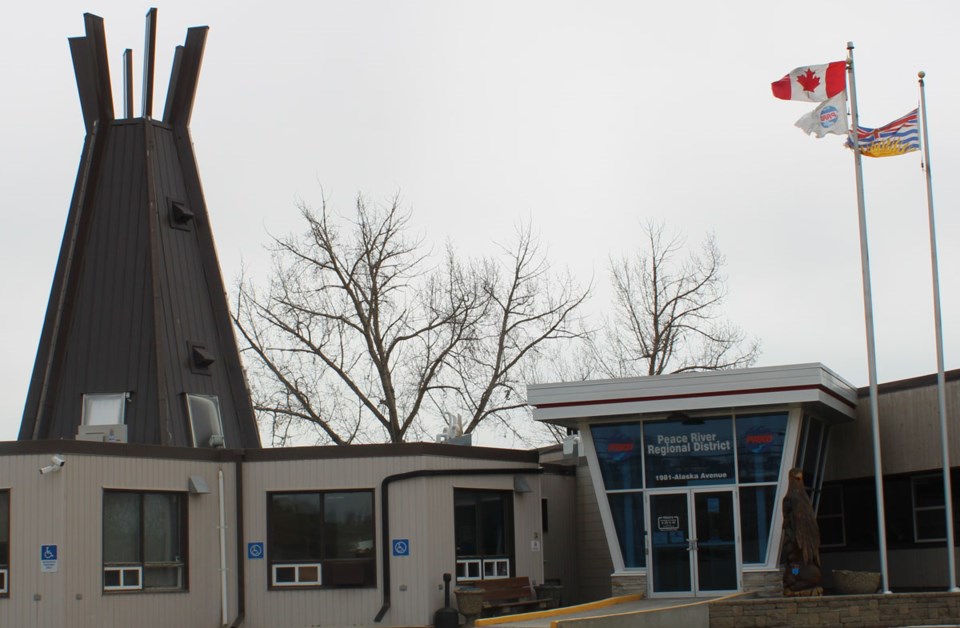Peace River Regional District directors are sounding the alarm about soaring solid waste costs.
"Solid waste is our most expensive part of this regional district, and it is something that is growing year over year, and we've gotta get a handle on this thing; because it's just going to continue to nickel and dime us to death," said Director Tony Zabinsky, representing the City of Fort St. John, during the district's Jan. 19 solid waste committee meeting.
The directors were taking a look at operating costs, funding and revenue sources, and capital infrastructure projects included in the PRRD's 2024 financial plan.
The draft 2024 budget totals $18,889,171 to cover all regional services, with an estimated 2024 tax rate of $0.3232 per $1,000, an increase of 24.2 percent.
So far, $11,732,924 of the $18.8 million is for operational costs. Another $7,156,247 represents capital projects costs, with $5,090,250 in new spending, despite increases and decreases in several areas.
For example, contract expenditures the North Peace Regional Landfill are up by an estimated 692 percent or $273,310, largely due to $130,000 needed for concrete crushing services, which is only needed every three years.
However, an estimated surplus of $1,000,000 has been included in the 2024 draft budget, after subtracting an estimated $600,000 in December invoices from a $1,629,188 surplus.
Capital projects include work and upgrades at Mile 62.5, Hasler Flats, Beatton River, the Hudson's Hope Transfer Station, Lebell Transfer Station, Chetwynd Landfill, and the Dawson Creek and Taylor Landfill water monitoring well installations.
The committee recommended that the board consider approving a business case for the well installations, with a potential $80,000 to be allocated to the project, while $235,000 is being considered for land remediation in Taylor and Mile 62.5.
The committee also recommended that the board authorize the Tumbler Ridge Transfer Station to be open an additional four days each year, as part of the regional district's spring and fall cleanup campaigns, and will extend the same offer to Hudson's Hope. Neither one of those communities currently collect tipping fees at their transfer stations.
The PRRD manages 16 attended and 11 unattended transfers stations and waives fees during the campaigns to encourage residents to bring their waste and recycling to the facilities.
An agreement between the PRRD and the District of Hudson's Hope is expected to be created in for the planned upgrades at their transfer station.
Committee members also recommended that the board consider sending a letter to the District of Taylor requesting to split the cost of bulky waste cleanup and repairs needed at the Taylor Landfill, which are estimated to total $100,000. Taylor currently holds the permit for the site, despite the PRRD taking over management responsibility for most of the solid waste services across the Peace during the late 1990s.
The committee further recommended the board look at extending their Agricultural Plastics Pilot Program for a one-year term only, ending in June 2025, at a cost of $63.477.
The pilot has ran for three years, and is a partnership project with Cleanfarms to divert grain bags and twine to regional solid waste facilities for recycling. The extension gives Cleanfarms time to secure grant funding though Agricultural and Agri-Food Canada, as they intend to cover 50 percent of the costs.
More than 54,000 kilograms of grain bags and approximately 50 bags of twine have been collected, with most of it collected at the Rolla Transfer Station, diverting agricultural plastics from being burnt or disposed of in landfills.
PRRD solid waste manager Gerritt Lacey estimated that roughly $3,000 in tipping fees could have potentially been collected from residents, had the project not been in place.
"The focus on the pilot is keeping those materials out of landfill in the first place," he said, noting materials are typically disposed of by incineration or turned into plastic pellets when there's low market demand for recycled plastics.
You can read the budget and recommendations in detail here:
by on Scribd




